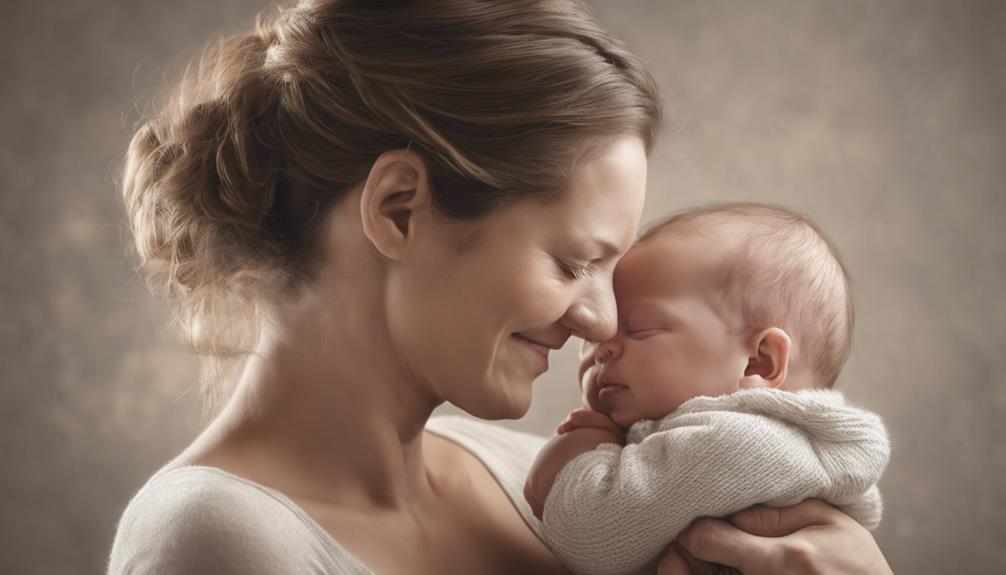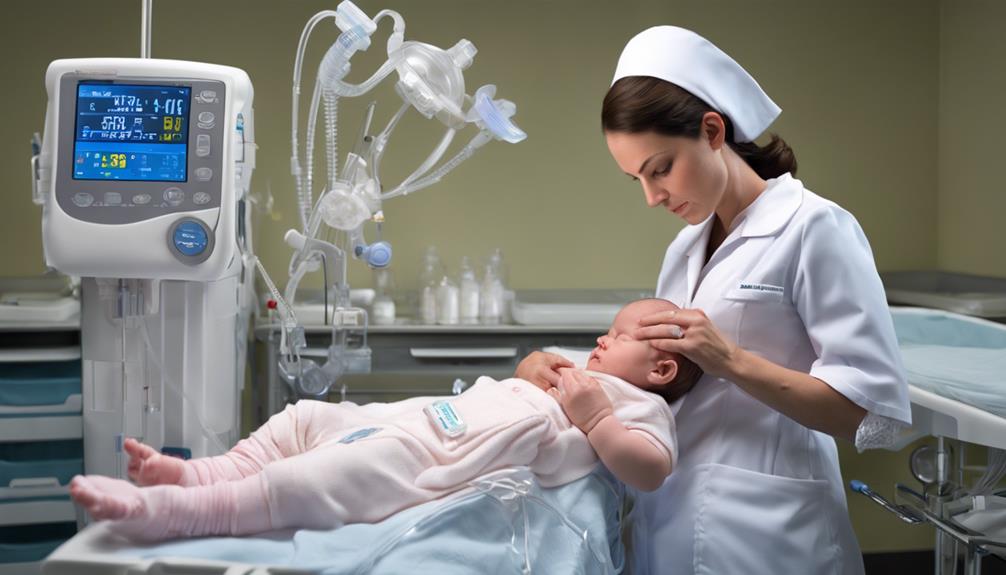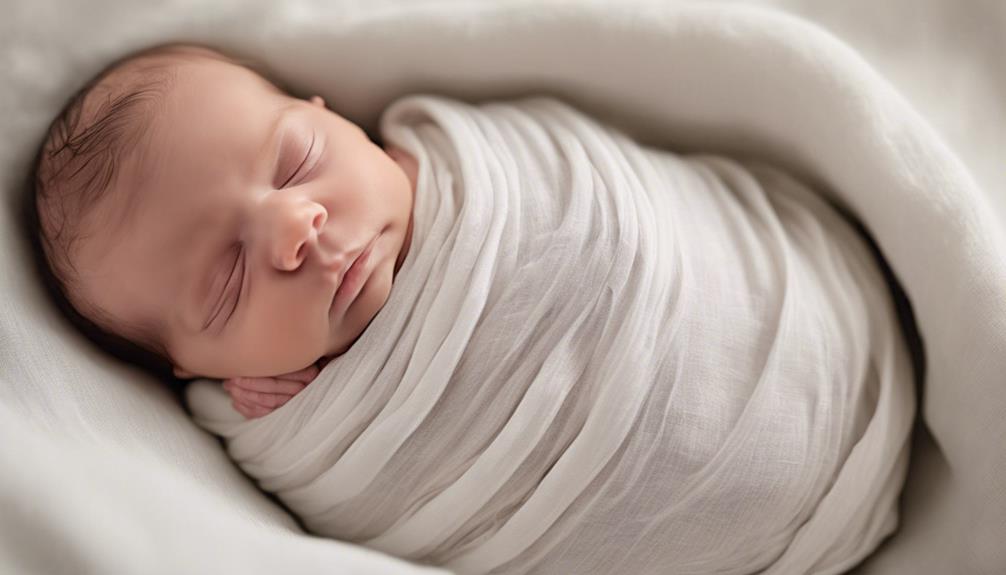When your newborn starts hiccuping, you may feel flustered. However, fret not, as there are gentle methods to ease those pesky hiccups.
From patting your baby's back to employing pacifiers, these subtle strategies can provide comfort and relief.
But what if these tactics don't work? Stay tuned to discover additional tips that might just do the trick for your little one's hiccups.
Key Takeaways
- Proper burping techniques release trapped air and prevent newborn hiccups.
- Pacifiers soothe hiccups by relaxing the diaphragm and distracting with sucking reflex.
- Position changes to keep the baby upright and calm aid in relieving hiccups.
- Prevent hiccups by frequent burping, smaller feedings, upright posture, and a calm feeding environment.
Causes of Newborn Hiccups
If your newborn is experiencing hiccups, it's essential to understand the common causes behind this phenomenon to effectively manage and prevent them. Newborn hiccups are often triggered by factors like diaphragm irritation, leading to quick and jerky movements that produce the hiccup sound.
Eating too quickly, having a bloated stomach, or even the Tonic Neck Reflex can set off these spasms in your little one's diaphragm, resulting in those adorable yet bothersome hiccups. The diaphragm, a vital muscle for breathing, can sometimes spasm due to irritation, causing these quick and jerky movements that manifest as hiccups in newborns.
Burping Techniques for Relief

To help alleviate your newborn's discomfort caused by hiccups, mastering proper burping techniques is key in providing relief and preventing future episodes. Whether your little one is bottle-fed or breastfed, burping during feedings is essential to releasing trapped air and reducing the chances of hiccups.
For bottle-fed babies, burping every 2-3 ounces can help relieve gas. Breastfed babies, on the other hand, should be burped when switching between breasts to minimize air intake. Remember, using proper techniques like gentle patting or rubbing the back can effectively assist your newborn in getting rid of hiccups.
Consistent burping practices not only aid in comfort during feedings but also contribute to a more pleasant feeding experience overall. By incorporating these simple yet essential burping routines, you can help guarantee your newborn stays comfortable and free from the discomfort of hiccups.
Pacifiers as Soothing Tools
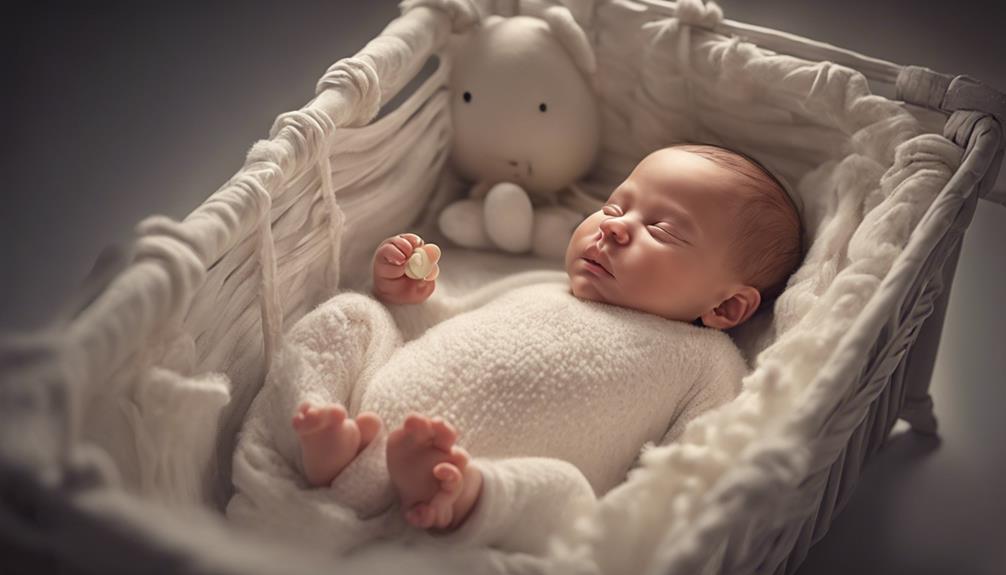
Pacifiers serve as gentle tools that can aid in soothing newborns experiencing hiccups. The sucking motion on a pacifier can help relax the diaphragm, potentially halting the hiccups. When your baby sucks on a pacifier, it triggers a sucking reflex that can distract them from the discomfort of hiccups, offering hiccup relief.
This sucking action may also assist in regulating your baby's breathing, further aiding in alleviating hiccups. Using pacifiers is a safe and widely accepted method to soothe newborns and provide comfort. It's a non-invasive way to help your little one through those bouts of hiccups.
Offering a pacifier to your baby during hiccups can not only bring them comfort but also help in diaphragm relaxation and breathing regulation. Remember, pacifiers are there to help soothe your baby and provide a safe tool for hiccup alleviation.
Position Changes for Hiccup Relief
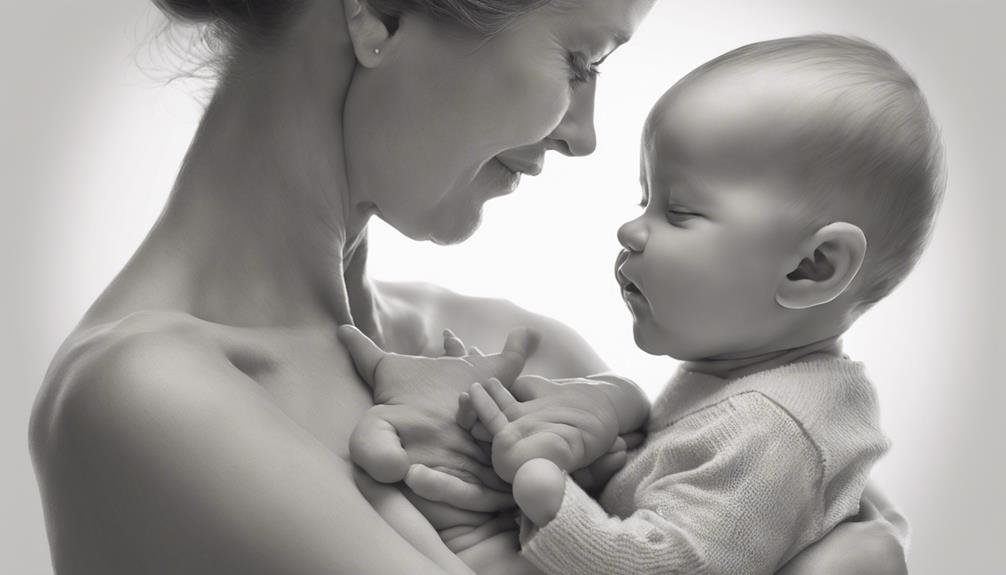
When comforting a newborn experiencing hiccups, consider making simple adjustments to their position to alleviate the discomfort. Here are some practical tips to help your baby find relief:
- Keep Baby Upright: Changing your baby's position from lying down to upright can reduce pressure on the diaphragm, helping to ease hiccups.
- Position During Feeding: Place your baby in a slightly inclined position while feeding to aid digestion and reduce air intake, which can prevent hiccups.
- Gentle Patting: While your baby is in an upright position, gently pat or rub their back to help release trapped air and alleviate hiccups.
- Stay Calm and Relaxed: Keeping your baby calm and relaxed during feeding and after meals can help prevent hiccups from occurring. Avoid sudden movements that might agitate them and prolong the hiccup episode.
Preventing Hiccups in Newborns
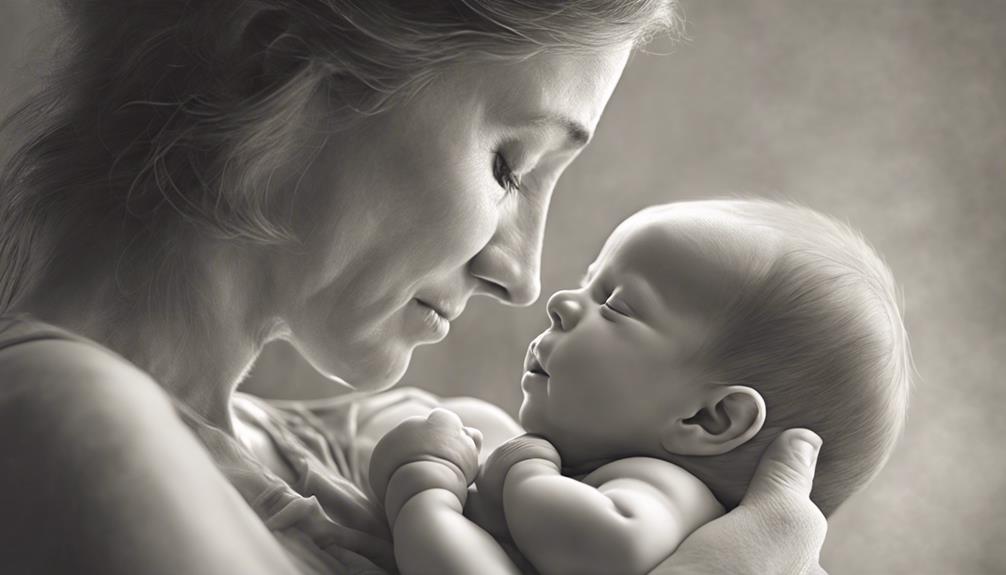
Consider burping your newborn frequently during feedings as a preventive measure against hiccups, ensuring trapped air is released from the stomach. By burping your newborn after every ounce or few minutes during feedings, you can help prevent hiccups caused by swallowed air.
Offering smaller, more frequent feedings can also reduce the likelihood of hiccups resulting from overfeeding. Keeping your baby in an upright position for about 20-30 minutes after feeding can aid in digestion and minimize hiccups.
Remember to stick to breast milk or formula only, as giving water or other liquids can lead to hiccups due to improper intake. Additionally, creating a calm and soothing environment during feedings can help prevent hiccups by reducing stress and promoting relaxation.
Embracing these preventive measures can support your newborn in having a comfortable feeding experience while minimizing the occurrence of hiccups.
Frequently Asked Questions
How Can I Soothe My Newborn's Hiccups?
You can soothe your newborn's hiccups by burping them during and after feedings, offering a pacifier, changing their position to upright, and gently rubbing their back. Avoid adult remedies like holding breath.
Is It OK to Lay Baby Down With Hiccups?
It's perfectly fine to lay your baby down with hiccups. Hiccups are usually harmless and go away on their own. Placing your baby on their back to sleep is safe, and hiccups won't interfere with their rest.
What Is the Best Position for Baby Hiccups?
To help your baby with hiccups, hold them upright against your chest or in a slightly inclined position. Supporting their head and neck while keeping them upright can relax their diaphragm. Avoid laying them flat right after feeding and gently pat or rub their back.
Do Hiccups Mean Baby Is Full?
When your newborn hiccups, it doesn't always mean they're full. Hiccups can pop up from all sorts of triggers like air swallowing or sudden moves. Keep an eye on what sets them off!
Conclusion
So next time your little one gets the hiccups, remember to try these gentle techniques. Like a soothing lullaby, they can help calm the hiccup storm and bring peace to your baby's tummy.
Keep in mind that patience and love are the best remedies for those pesky hiccups. Your baby will thank you with a contented sigh and a smile that lights up the room.
